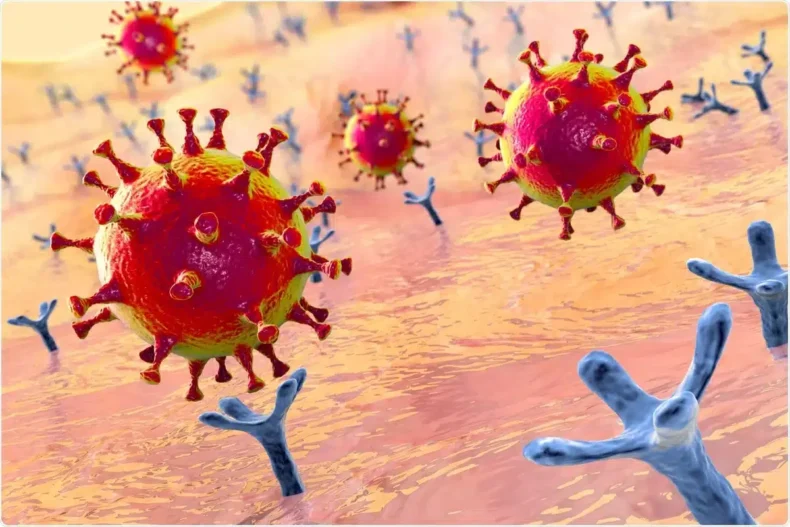Scientists at Cambridge University have remodeled off-patent liver drugs on ACE2 doorway, which are capable of protecting against future variants of Coronavirus. In these three years, the Covid-19 vaccine has become one of the most potent tools against different variants of coronavirus. It gives training to our immune system to recognize foreign cells and destroy them, but not everybody has a properly functioning immune system.
Dr. Sampaziotis, a researcher, at Cambridge Stem Cell Institute said that they were interested in finding alternative ways of protection against SARS-CoV-2 infection that do not rely on the immune system and could complement vaccination.
One of the properties of the virus also is to disguise itself avoiding the immune system to recognize it, causing mutations, which thereby reduces the effectiveness of any vaccine. But in this case, this drug targets the host cells rather than the virus, and this might protect us from its future variants.
A report on a Coronavirus vaccination study shows that only 68.9% of the global population has received at least one dose of the Covid-19 vaccine, whereas only 24.9% of people in under-resourced countries have received one dose.
How does UCDA operates?
The focus of the study was on liver regeneration and bile duct diseases, which are the leading cause of liver transplantation in children.
Dr. Sampaziotis had previously been working to study diseases of the bile duct and serendipitously found that a molecule called FRX, which is abundantly present in the bile duct directly regulates the ACE2 doorway by effectively opening and closing it. Later they tested the drug, ursodeoxycholic acid (UDCA), which is primarily used to cure liver disease. It was observed that UDCA turns down FRX and closes the ACE2 doorway.

ACE2(Angiotensin-converting enzyme2) is an enzyme that is found attached to the cell membranes(mACE2) of the intestines, gallbladder, kidney, and heart or in a soluble form(sACE2).
In this study, they have focused on how the same drug can be used to close the doorways of ‘mini-lungs’ and ‘mini-guts’- the two main target zones of SARS-CoV-2. Later they tested whether the drugs could prevent infection outside lab-grown cells, so they took hamsters which were the ‘gold-standard’ model for pre-clinical testing of UDCA against SARS-CoV-2, and they observed that the drugs protected the hamsters from the delta variant.
Next along with other researchers, they thought of performing the same experiment and checking whether the drugs would hold the trust same for human cells. A pair of donated lungs were taken, and both were provided with the necessary conditions to keep them alive. One was injected with UDCA and both were later exposed to SARS-CoV-2. It was observed that the lungs that received the drug were not infected, while the other one was.
Professor Fisher, one of the researchers of this study said this was one of the first attempts to test the effect of a drug on a whole human organ, and important for organ transplantation, given the risks of passing on COVID-19 through transplanted organs are high, and hence this opens the possibility of treating organs with drugs before any transplantation procedure.

Reasons to target ACE2 doorway-
- This whole process of blocking does not require an optimally functioning immune system.
- As ACE2 receptors are made in our own cells, so there will hardly be any effect if the virus is being targeted, hopefully making the cells more resilient to SARS-CoV-2 variants.
This tablet is affordable, can be produced in numbers in a given time period, and can be easily stored or shipped, which makes it easy to rapidly deploy during outbreaks. What this can possibly mean is, it can become an important weapon in our fight against COVID-19.













